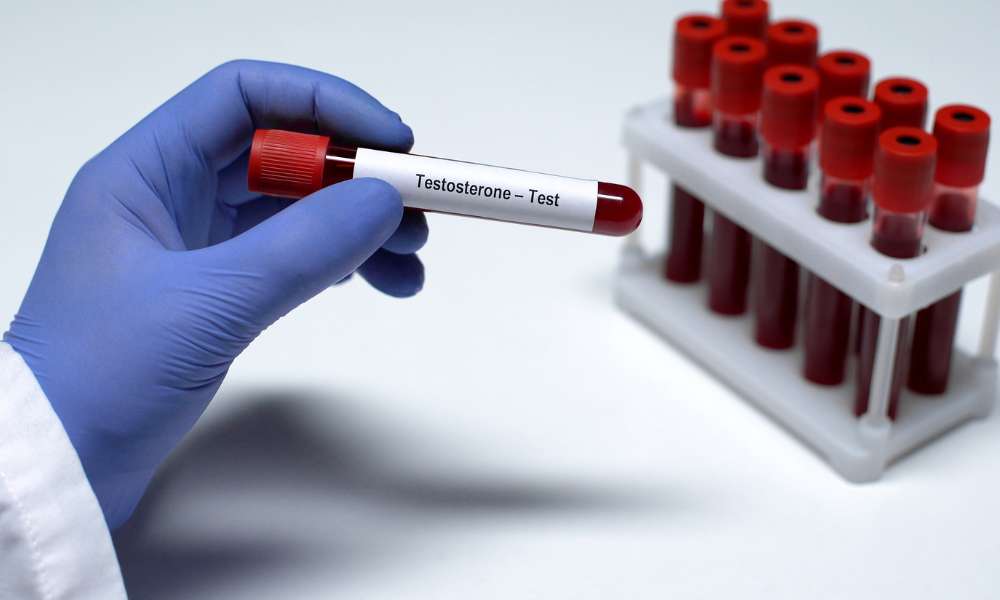Low testosterone, a condition commonly referred to as “low T,” affects millions of men globally, impacting their health in profound ways. At St. Johns Wellness, we often encounter individuals unaware of the potential risks associated with untreated low testosterone. Understanding these risks is crucial for maintaining long-term health and wellness.
Ponte Vedra, St Augustine, Jacksonville, St Johns, Nocatee FL
The Basics of Low Testosterone
Testosterone is a hormone pivotal in male development and health. It plays a key role in building muscle mass, sustaining energy levels, and maintaining sexual function. Testosterone levels naturally decline with age, but for some, this decrease can lead to symptoms and conditions that affect quality of life significantly. These symptoms might include reduced libido, fatigue, weight gain, and feelings of depression.
Risks of Untreated Low Testosterone
Ignoring low testosterone can have several long-term consequences:
1. Cardiovascular Health
Testosterone has a significant impact on heart health. Low levels are linked to an increased risk of cardiovascular diseases, including heart attacks and strokes. Testosterone helps maintain endothelial function and reduces the likelihood of atherosclerosis (plaque build-up in the arteries), which is why maintaining balanced levels is crucial for cardiovascular health.
2. Mental Health
Mental health issues such as depression and anxiety are common in men with untreated low testosterone. The hormonal imbalance can affect mood, energy levels, and overall mental well-being. Moreover, the persistence of these symptoms can exacerbate stress and lead to significant emotional distress if not addressed.
3. Bone Health
Testosterone plays a vital role in bone mineral density. Men with low testosterone are at a higher risk for osteoporosis and fractures. This can lead to a decreased quality of life and increased disability, especially as one ages.
4. Muscle Mass and Strength
Testosterone is essential for building and maintaining muscle mass. Without adequate levels, men might experience muscle wasting, increased fat accumulation, and a decrease in strength. This change in body composition not only affects physical appearance but also contributes to overall physical decline and the risk of obesity.
5. Metabolic Implications
Low testosterone is often associated with insulin resistance, which can escalate into Type 2 diabetes if not monitored. The hormonal imbalance promotes fat storage, particularly around the waist, which is a significant risk factor for several metabolic conditions.
Addressing Low Testosterone
Understanding the potential consequences of untreated low testosterone underscores the importance of seeking medical advice if you suspect you might be affected. At St. Johns Wellness, we recommend starting with a simple blood test to measure your testosterone levels. If they are low, various treatment options can help, including hormone replacement therapy (HRT), lifestyle changes, and dietary adjustments.
HRT, particularly, can be a game-changer for those struggling with significant symptoms. It helps restore testosterone levels to normal, alleviating many of the symptoms associated with low T. However, like any treatment, it comes with its considerations and should be discussed thoroughly with a healthcare provider to ensure it fits your personal health profile and risk factors.
Conclusion
The risks associated with untreated low testosterone are significant and varied, affecting everything from cardiovascular to mental health. At St. Johns Wellness, we emphasize the importance of early diagnosis and treatment to mitigate these risks and enhance quality of life. If you’re experiencing symptoms that suggest low testosterone, don’t hesitate to reach out for a consultation. Prioritizing your hormonal health is not just about improving quality of life—it’s about safeguarding your health for the future.




